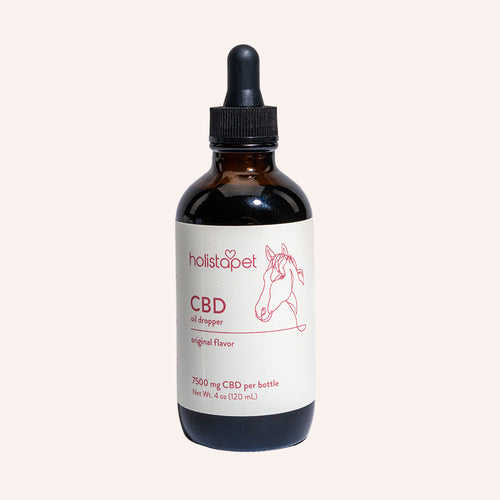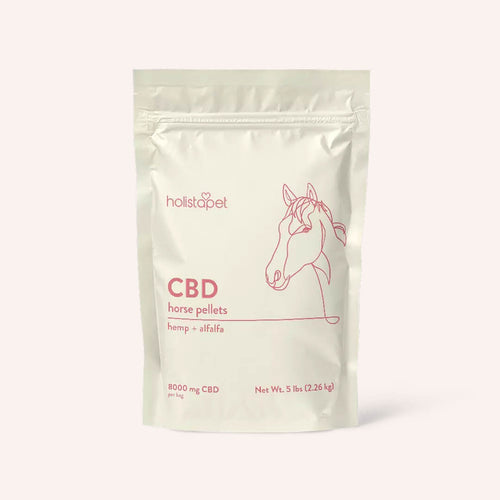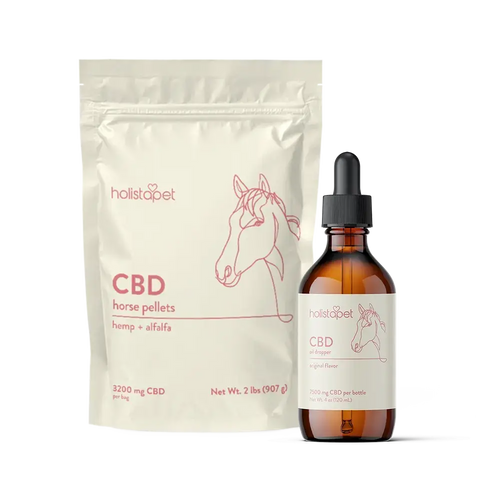Today it is not unusual for a horse to live well into their 20's or 30's. They are able to live longer and healthier lives than in the past thanks to modern improvements in horse nutrition and wellness. One supplement horse owners should be knowledgeable of is Methylsulfonylmethane (MSM for short).
MSM for horses is an organic, natural, dietary sulfur supplement that is used for maintaining wellness. Not only is it a very safe compound, but MSM supplementation can also makes horses stronger, faster, and more limber!
What is MSM?
By molecular weight, MSM is 34%bioavailable sulfur, thereby making it an exceptionally rich source of easily metabolized sulfur. This is important, as sulfur is the 8thmost abundant substance in a horse’s body.
Sulfur is critical for connective tissue and cell regeneration in horses. It is also crucial for horse equine health as it is present in every cell and is important for the formation of over 150 other compounds in their bodies, including:
- Tissues
- Enzymes
- Hormones
- Antibodies
- Antioxidants
Furthermore, the highest concentration of elemental sulfur in horses is found in the:
- Hair
- Joints
- Skin
- Nails
Additionally, sulfur is needed for the formation of glucosamine andcollagen,both of which are necessary components for supporting:
- Bones
- Healthy Joints
- Ligaments
- Tendons
Consequently, MSM supplements are extremely popular and are widely given to horses by owners, trainers, and veterinarians. In some segments of the veterinary literature, MSM is referred to as an oral joint-health supplement(OJSH). These OJSHs account for over 1/3 (34%) of all nutritional supplement sales for horses.
What are the Benefits of MSM for Horses?
MSM has a variety of benefits for horses, including its ability to:
- Maintain flexibility and permeability in cell membranes. In other words, this allows for cells in the horse’s body to efficiently and effectively exchange waste and nutrients. It is useful to think of cell membranes as porous borders that control the transfer of a variety of compounds into and out of the cell.
- Support the quality and strength of connective tissues and the production of collagen. This keeps horses active, athletic, and limber well into their older years.
- Provide the horse’s body with the raw materials needed for cell regeneration, which is just a fancy way of describing the creation of new cells.
- Provide energy to the horse’s body. It does so by being a crucial component in insulin and a prerequisite for the proper metabolism of carbohydrates (sugars).
- Act as a precursor chemical to the amino acids methionine and cysteine. Both of these are significant in that they protect against the effects of radiation and the removal of heavy metals from the horse’s body. Cysteine is also necessary for the production of collagen and the repair of connective tissues as well as a potent antioxidant that fights the effects of damaging free radicals.
MSM For Arthritis In Horses
Many horses, unfortunately, suffer from Equine Arthritis and lameness. With a population of approximately 9.2 million horses in the United States, according to one source "on a given day as many as 5% of the horses could be expected to be lame." This calculates to 460,000 horses suffering from lameness in the US. Of these cases, 276,000 are caused by OA.
As a result of healthy inflammatory response, the study found that OA treatment is most effective if it combines:
- Non-steroidal anti-inflammatory drugs(NSAIDs)
- Corticosteroids
- Hyaluronic acid
- Polysulfated glycosaminoglycans
- Avocado-soybean unsaponifiable(ASUs) as nutritional supplements
- Omega-3 fatty acids in the diet
- Administration of OJSHs, including MSM, glucosamine, and chondroitin sulfate
Landmark MSM Horse Study (Riegel’s Study)
There was also a landmark study done in 2001 by Ron Riegel, DVM,on 30 racing Standardbred horses. These Standardbreds were between 3- and 4-years old and were all in full race training at the Ohio county fair track. During the study, Riegel was able to convince the trainers to eliminate all other supplements and medications for three weeks prior to the beginning of the study.
Riegel then divided the horses into three groups:
- Group 1 received no MSM.
- The 2nd group received 10 grams (10,000 milligrams) of MSM per day.
- The 3rd group received 20 grams (20,000 milligrams) of MSM per day.
The study showed that the horses who received the MSM improved in three primary ways:
- Horses that received MSM showed dramatically less post-activity discomfort, swelling, and muscle soreness (especially at the back and hind end). The higher the serving, the faster and more significant this improvement was.
- The horses that were given MSM had significantly lower levels of aspartate aminotransferase(AST) and creatine kinase(CK), both enzymes that increase with muscle damage.
- Group 2 improved their average training time by 2 seconds and Group 3 improved by 2.62 seconds.
The conclusions of the study were nothing short of amazing. Even the trainers were blown away by the results. Remember that they agreed to suspend all other medications and supplements before the study, so they were initially skeptical of Riegel’s study.

Is MSM Safe for Horses?
Yes, absolutely! Amazingly enough, MSM is one of the least toxic substances in biology. In fact,researchers consider itto have the same toxicity as water!
Furthermore, the famous Riegel study showed that there were no significant side effects, including:
- None of the horses experienced diarrhea
- There were no allergic reactions
- No reports of abnormal blood chemistry
Furthermore, anecdotal evidence from the trainers indicated that Group 3 horses had:
- Better hair and coats
- Healthier and faster hoof growth
- Quicker recovery times after exercise
These amazing effects have been seen time and again amongst horses who take MSM daily, even up to doses of 20,000 milligrams a day.
Can Horses Have MSM Every Day?
Yes, you can give your horse MSM every day. In fact, most veterinarians recommend MSM as a daily supplement for horses to maintain optimal wellbeing. As we just discussed, veterinarians consider MSM to be one of the least toxic biological substances. The fact that we haven't seen any side effects associated with MSM indicates that regularly consuming it is not just reliable; it's advisable.
Can Ponies Take MSM?
Yes, ponies can take MSM supplements. However, they should receive lower amounts than horses because they weigh less. Most sources recommend 2 grams (2000 mg) of MSM per 100 kg (220 lbs) of body weight. Some ponies may require more or less depending on their needs, so ask your veterinarian to help you determine the right quantity to give your horse.
How Much MSM Should a Horse Take Daily?
It may be important to know that MSM has all the same benefits for other mammals, including cats and dogs. It is usually available in both capsule (250 milligrams or 500 milligrams) and powder form. The capsules are usually given to smaller mammals while the powder form is given to horses.
Consequently, standard servings should look something like this:
Horses – Powder form
1 full scoop (12,000 milligrams) twice a day for 5 days and then ½ scoop (6,000 milligrams) twice a day from there on out. So that means that the horse will start at 24,000 milligrams a day and then 12,000 milligrams a day for every day after that.
Large dogs – 500-milligram capsules
1 per day for every 20 pounds of body weight. If the dog requires more than one capsule daily, then divide it between the morning and the evening.
Small dogs and cats – 250-milligram capsules
1 per day for every 10 pounds of body weight. If the dog or cat requires more than one capsule per day, then divide it between the morning and the evening. Through extensive research, veterinarians have concluded that the initial 5-day serving should be significantly higher than the later daily serving amounts. This large first serving is a way to “jumpstart” the horse’s absorption of the MSM.
How to Give MSM to Your Horse
A recent study has indicated that MSM has the highest absorption rate (55%)of all oral joint support wellness supplements. This means it is extremely easy for your horse to metabolize. Furthermore, the sulfur in MSM is naturally in foods like whole grains and alfalfa, but for some reason is not stable in this form and quickly degrades. This is especially true if the food is processed into hay.
Therefore, MSM for horses is commercially available in powder or pellet form, either of which can be easily mixed with oats or hay that are fed to the horse. If you wish to add water in order to make a kind of easily-digestible slurry, then that is perfectly acceptable as well. MSM is massively beneficial to horses. It keeps them active, strong, and limber by supporting their bones and connective tissue.
It also allows them to bounce back quickly and efficiently from any strenuous activity. This is especially useful for horses that ride often and see a lot of wear and tear on their joints and ligaments. It also can also be useful for the prevention of equine arthritis. MSM is safe, effective, and easily metabolized!
Other Equine Joint & Mobility Options
MSM is a popular and reliable option for horses with joint and mobility issues. However, there are several alternative options that you may be interested in trying. In this section, we'll cover some other common approaches to supporting mobility.
CBD
Cannabidiol (CBD) is a naturally-occurring chemical present in hemp plants. Hemp plants are a legal form of cannabis, and CBD should not get your horse "high." CBD interacts with the cannabinoid receptors in your horse's body. These receptors make up the endocannabinoid system (ECS). The ECS regulates several vital functions, including:
- Sleep
- Mood
- Memory
- Appetite
- Digestion
- Immune response
CBD offers horses support to the ECS. A well-functioning ECS is an important aspect of maintaining homeostasis. Homeostasis refers to the optimal chemical balance for the body. It is a foundational part of your horse's overall wellbeing (and yours too!). The potential benefits of CBD include:
- Relief from discomfort and aches
- Support for mobility
- Promotion of natural sleep
- Reduction of distress
Here at HolistaPet, we carry CBD oil for horses . We also offer CBD-infused horse pellets, so you can give your steed a tasty snack in addition to multiple wellness benefits!

Omega Fatty Acids
Omega fatty acids include omega 3, omega 6, and omega 9. In particular, omega 3 is a very popular supplement for both people and pets. Research indicates that essential fatty acids help reduce swelling and joint stiffness. It's no surprise that omega 3 supplements have been flying off store shelves for decades.
Common sources of omega fatty acids include fish oil, seaweed, flaxseed oil, and hemp seed oil. You can easily integrate these into your horse's diet by adding an omega-rich oil to their daily meals.
Hyaluronic Acid
Hyaluronic acid is an essential compound that comes from synovial fluid – the viscous liquid between bones that lubricates joints. These days, hyaluronic acid supplements are widely available over-the-counter, even for horses! Supplementing your horse's diet with hyaluronic acid may help to reduce friction within their joints.
Avocado Soy Unsaponifiables (ASU)
Avocado soy unsaponifiable (ASU) are products that contain a blend of elements from avocado and soybean oils. They contain a wealth of vitamins, particularly vitamin E, which may help to protect cell membranes. ASU have also shown the ability to deter certain enzymes that contribute to swelling within joints and throughout the body.
Final Thoughts – Why do Horses Need MSM?
A horse's wellbeing hinges on its mobility. After all, they enjoy active lifestyles of running, racing, and showmanship. Joint issues can put a roadblock between your horse and its favorite activities. You may be able to help them with MSM. We always advise talking to a vet before giving your horse anything new.
The vet can help you determine whether MSM is the right product for your horse or if they would fare better with another option like essential fatty acid supplements or CBD. It might take a little experimentation, but with all the options out there, you can surely find something that helps your horse.
For other basic tips about horse care, feel free to visit this resource page!

 CBD Oil for Horses - Fast Acting
CBD Oil for Horses - Fast Acting
 CBD Pellets for Horses - Easy Dose
CBD Pellets for Horses - Easy Dose
 "Ridin' On My Horse" Bundle - Highly Rated
"Ridin' On My Horse" Bundle - Highly Rated




Leave a comment
All comments are moderated before being published.
This site is protected by hCaptcha and the hCaptcha Privacy Policy and Terms of Service apply.